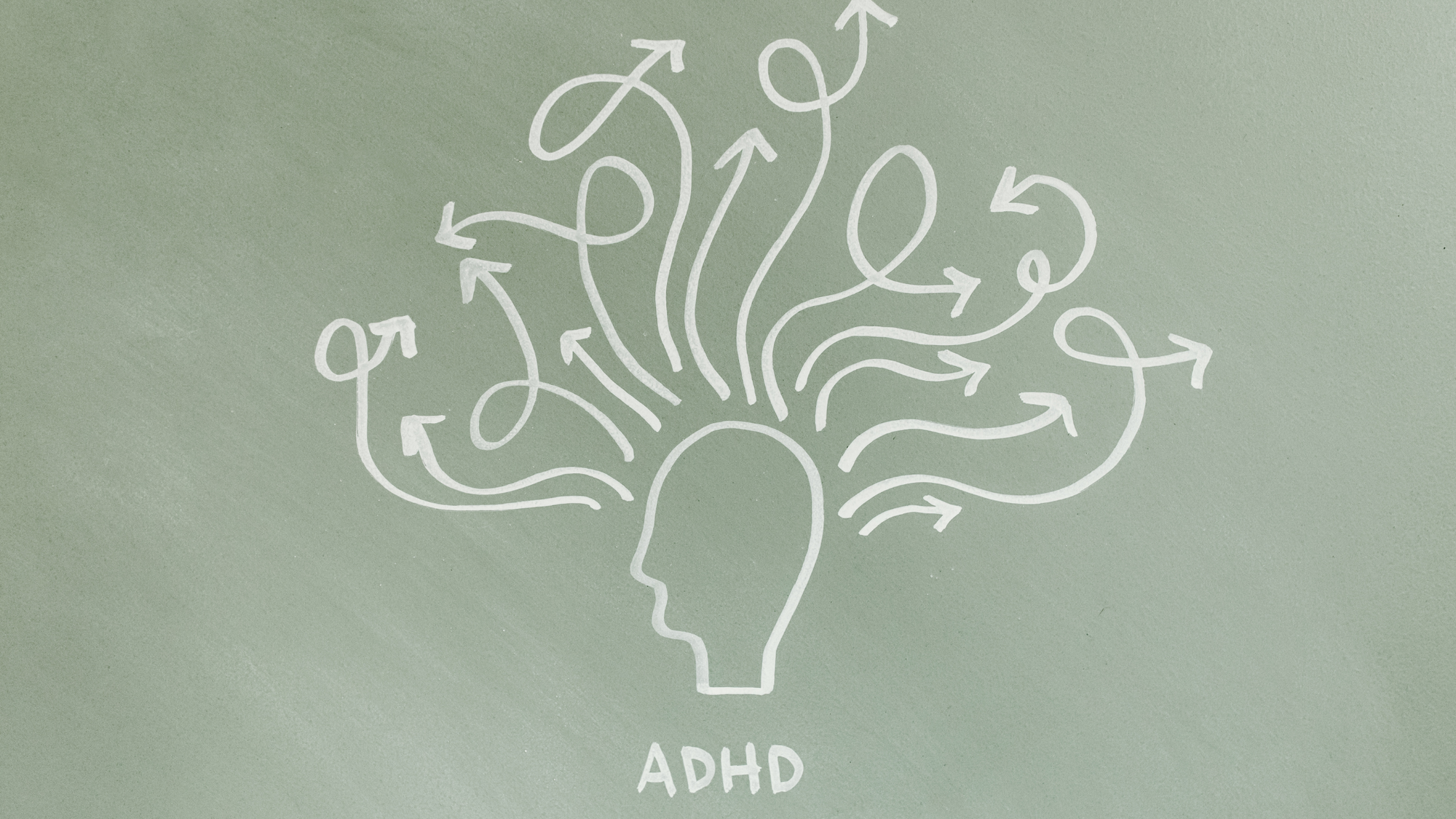
There are quite a few pros and cons of Adderall, each of which should be carefully considered before you start taking Adderall, or any new medication. However, the question before we start driving in, is what Adderall actually is, and what it’s used to treat.
Adderall is a prescription medication used to treat ADHD or Attention Deficit Hyperactivity Disorder.
Essentially, ADHD is an executive functioning deficit disorder, as it impacts the brain’s executive functioning skills. ADHD is considered a mental illness, and it is often brought up during mental health awareness initiatives, as it’s a common mental health condition.
Adderall is one of many options for medications used to treat ADHD. The medication contains a mixture of four amphetamine salts. Adderall improves communication between nerves in the brain for improved performance.
When taken, Adderall can help improve focus, productivity and concentration for those with ADHD, and can even improve their ability to listen to others and be alert regarding their surroundings. Many people feel more mentally alert on Adderall, with an increased ability to complete tasks, as this medication is a stimulant.
Some people who suffer from the sleep condition Narcolepsy even take Adderall to help them stay awake during the day. However, not everything about this medication is good, and this is why the pros and cons of Adderall need to be discussed at length.

Is Adderall Safe?
Adderall is safe for you to use in the long term, so long as you are taking the amount prescribed by your doctor, you’re not abusing or misusing the substance, and you’re taking it under the guidance of a doctor for a real, legitimate, medical diagnosis.
Many people who take Adderall will find that some of the general side effects are lessened once they’ve been taking it for a while.
It’s extremely important to note that misuse and abuse of the drug (taking excessively high doses or taking it recreationally when you don’t have ADHD) can lead to a reduction in the brain’s ability to produce dopamine.
Dopamine is the ‘happy’ chemical in the brain that helps us to feel joy, accomplishment, and satisfaction.

Who Should Take Adderall?
Adderall is typically best suited to those who suffer from the medical condition of ADHD, and need medication to help improve their executive functioning and their ability to focus, retain information, and concentrate on specific tasks or in certain situations. It is helpful for reducing the chances of distraction and helps create more single-track thoughts in the brain as opposed to the usual highway of constant thought processes.
Adderall has been exceptionally well-received for this use, and while there are many pros and cons of Adderall, it certainly helps refocus the mind for those struggling with ADHD.
Interestingly, Adderall can also be used to help treat those who suffer from Narcolepsy. This is a sleep disorder that causes the sufferer to fall asleep at random intervals throughout the day. It is a chronic condition, and can be difficult to predict, but Adderall has been shown to help Narcolepsy sufferers stay awake during the day and reduce the instances of involuntary sleep.
The Pros and Cons of Adderall
There are certainly a plethora of pros and cons of Adderall, and taking a new medication is always a daunting decision. This is why it’s so important to do your research first, and this section (as well as the ones that follow) should help give you a clearer idea of how the medication works.
Before we go into a more detailed list of the pros and cons of Adderall, this is a quick overview of what you can expect when you take this medication.
Potential Pros of Adderall:
- Improved focus
- Reduced procrastination
- Better motivation
- Reduced impulsivity
- Improved concentration
- Improved mental alertness
Potential Cons of Adderall:
- Jitters and dizziness
- Trouble sleeping or insomnia
- Headaches
- Irritability
- Nausea
- Loss of appetite and weight loss
- Can increase anxiety
- Risk of dependency or substance abuse issues
When weighing up the pros and cons of Adderall, it can definitely be worth a few headaches to feel more focused and streamlined throughout the day. However, the loss of appetite and weight loss does need to be carefully monitored so that it doesn’t become an issue.
Furthermore, since Adderall is a stimulant, you’ll need to speak to your doctor about whether or not this is the right medication for you if you already are an on-edge, anxious person.
It’s overall an effective medication that can be exceptionally helpful, but it affects everyone differently, and it might not be the right ADHD medication for you. There are plenty of other options out there if Adderall doesn’t work for you.
Positive Side Effects of Adderall
In addition to the pros and cons of Adderall, it is a good idea to take a look at a list of the positive side effects that it has on the brain. After all, it is a medication used for the treatment of ADHD, so there must be a good list of positives.
These are some of the positive side effects you can expect from taking Adderall:
- Improve focus
- Improve concentration
- Improve attention span
- Increases dopamine
- Increases norepinephrine
- Boosts communication between nerves in the brain
- Regulates energy levels
- Balances blood pressure and blood sugar
- Improved executive functioning
Negative Side Effects of Adderall
Almost every prescription medication has negative side effects, and Adderall is no different in this regard. Some of the most common (and mild) undesirable side effects include:
- Dry mouth
- Nausea
- Difficulty sleeping
- Anxiety
- Headaches
- Stomach aches
- Loss of appetite
- Weight loss
- Constipation
- Dizziness
However, there are also some potential negative side effects of Adderall that are more serious. These ones are certainly rarer, and you’re much less likely to encounter them, but it’s important to be aware of the risks of any medication. If you experience any of these side effects, see a doctor immediately:
- Depression
- Severe irritability
- Hallucinations
- Heart problems
- Rhabdomyolysis
- Delusional thoughts
- Blurred vision
- Aggression
What’s the Long-Term Impact of Taking Adderall?
If Adderall is used appropriately, there is no need to worry about serious long-term effects. However, the continued misuse and abuse of the drug over time can lead to a negative experience. If you have been taking too much Adderall, or have been misusing the drug for a long time, you may experience some of the following long-term impacts:
- Fatigue
- Depression
- Insomnia
- Irritability and mood swings
- Skin issues
- Psychosis
- Heart problems
- Anorexia
Adderall vs. Dexedrine
The major difference between these two ADHD medications is that Dexedrine only contains dextroamphetamine, whereas Adderall uses dextroamphetamine in addition to amphetamine in its composition. The result is that Adderall affects the central nervous system and the peripheral nervous system, while Dexedrine only affects the former of the two.
As a result, Adderall is a more effective medication for the treatment of ADHD as it targets a larger number of the affected areas to help calm the mind and refocus the train of thought. With regard to the pros and cons of Adderall, it certainly has more pros when compared to Dexedrine.
Is ADHD a Genetic Condition?
Yes, ADHD tends to be a genetic condition, which means it often runs in families. Those who have one (or both) parents with ADHD are more likely to develop it themselves. It’s not guaranteed, but your genetics will play a significant role in whether or not you develop the condition. This isn’t necessarily a bad thing. ADHD can be a pain to deal with, but it also has some plus sides.
Using an at-home DNA test from CircleDNA, you can test your DNA with a simple cheek swab to gain genetic insights about whether or not you’re at higher risk of certain health conditions. With these DNA test results, you’ll be able to find out if you have a genetic predisposition for conditions like ADHD, depression, and anxiety. DNA testing kits are a great way to learn more about yourself, your personality traits, and what makes you the unique person that you are.
To Conclude
The pros and cons of Adderall are worth consideration, and while it can be an effective drug for those who struggle with ADHD, there are definitely downsides associated with it. While it can be a fantastic way to improve your focus and get through the day with minimal distractions, there are also negative side effects that can have a severe impact on your daily life.
Most doctors won’t prescribe Adderall unless you’re severely struggling with daily functions and executive functioning skills in life. This is because Adderall does come with some negative side effects, so it’s best not to take it unless you really need to. Less severe cases of ADHD may not warrant a medication like Adderall, and that’s up to your doctor to decide.
Furthermore, you have to be careful that you don’t take a different dose of Adderall by skipping days and taking double the next day, or any other misuse. You must follow your doctor’s instructions when taking this medication, especially when it comes to dose and frequency. So long as you do this, your experience with Adderall should be a positive one. It might be worth giving this ADHD medication a try if your doctor recommends it, since you can always stop at any time if it’s not working for you.
References:
- Magnus W, Nazir S, Anilkumar AC, Shaban K. Attention Deficit Hyperactivity Disorder. Nih.gov. Published August 15, 2022. Accessed March 7, 2023. https://www.ncbi.nlm.nih.gov/books/NBK441838/
- Berman SM, Kuczenski R, McCracken JT, London ED. Potential adverse effects of amphetamine treatment on brain and behavior: a review. Molecular Psychiatry. 2008;14(2):123-142. doi:https://doi.org/10.1038/mp.2008.90Abad V, Guilleminault C. New developments in the management of narcolepsy. Nature and Science of Sleep. 2017;Volume 9:39-57. doi:https://doi.org/10.2147/nss.s103467






